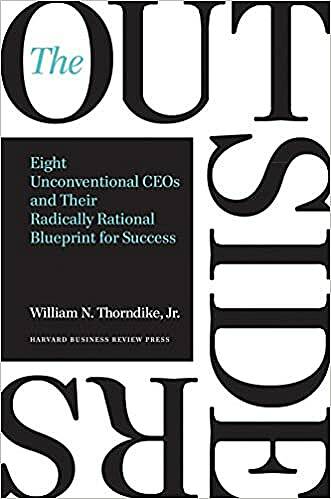
My highlights from the book:
1. It is impossible to produce superior performance unless you do something different.
2. Henry Singleton was a remarkable man with an unusual background for a CEO. A world-class mathematician who enjoyed playing chess blindfolded, he had programmed MIT’s first computer while earning a doctorate in electrical engineering.
3. During World War II, Singleton developed technology that allowed Allied ships to avoid radar detection, and in the 1950s, he created an inertial guidance system that is still in use in most military and commercial aircraft. All that before he founded a conglomerate, Teledyne, in the early 1960s and became one of history’s great CEOs.
4. This single-minded cash focus was the foundation of their iconoclasm, and it invariably led to a laser-like focus on a few select variables that shaped each firm’s strategy.
5. Warren Buffett’s partner, Charlie Munger, describes Singleton's extraordinary results as “miles higher than anybody else . . . utterly ridiculous.”
6. As Charlie Munger said of Singleton’s investment approach, “Like Warren and me, he was comfortable with concentration and bought only a few things that he understood well.”
7. He explained himself more simply: “My only plan is to keep coming to work. I like to steer the boat each day rather than plan ahead way into the future.”
8. Singleton’s fierce independence of mind remained a prominent trait until the end of his life. In 1997, two years before his death from brain cancer at age eighty-two, he sat down with Leon Cooperman, a longtime Teledyne investor. At the time, a number of Fortune 500 companies had recently announced large share repurchases. When Cooperman asked him about them, Singleton responded presciently, “If everyone’s doing them, there must be something wrong with them.”
9. One of the most important decisions any CEO makes is how he spends his time —Henry Singleton’s approach to time management was, not surprisingly, very different from peers. “I don’t reserve any day-to-day responsibilities for myself, so I don’t get into any particular rut. I do not define my job in any rigid terms but in terms of having the freedom to do whatever seems to be in the best interests of the company at any time.”
10. In addition to eschewing dividends, Singleton ran a notoriously decentralized operation; avoided interacting with Wall Street analysts; didn’t split his stock; and repurchased his shares as no one else ever has, before or since.
11. He believed in an extreme form of organizational decentralization with a wafer-thin corporate staff at headquarters and operational responsibility and authority concentrated in the general managers of the business units. This was very different from the approach of his peers, who typically had elaborate headquarters staffs replete with vice presidents and MBAs.
12. He was known as “the Sphinx” for his reluctance to speak with either analysts or journalists, and he never once appeared on the cover of Fortune magazine.
13. Singleton’s approach to acquisitions, however, differed from that of other conglomerateurs. He did not buy indiscriminately, avoiding turnaround situations, and focusing instead on profitable, growing companies with leading market positions, often in niche markets.
14. It turned out that he was right to ignore the skeptics. The long-term returns of his better known peers were generally mediocre.
15. Singleton was an iconoclast, and the idiosyncratic path he chose to follow caused much comment and consternation on Wall Street and in the business press.
16. As Warren Buffett has observed, very few CEOs come prepared for this critical task: “The heads of many companies are not skilled in capital allocation. Their inadequacy is not surprising. Most bosses rise to the top because they have excelled in an area such as marketing, production, engineering, administration, or sometimes, institutional politics. Once they become CEOs, they now must make capital allocation decisions, a critical job that they may have never tackled and that is not easily mastered. To stretch the point, it’s as if the final step for a highly talented musician was not to perform at Carnegie Hall, but instead, to be named Chairman of the Federal Reserve.”
17. CEOs need to do two things well to be successful: run their operations efficiently and deploy the cash generated by those operations. Most CEOs (and the management books they write or read) focus on managing operations, which is undeniably important. Singleton, in contrast, gave most of his attention to the latter task.
18. Many of the distinctive tenets of Warren Buffett’s unique approach to managing Berkshire Hathaway were first employed by Singleton at Teledyne. In fact, Singleton can be seen as a sort of proto - Buffett, and there are uncanny similarities between these two.
19. If you had invested a dollar with Singleton in 1963, by 1990, when he retired as chairman in the teeth of a severe bear market, it would have been worth $180.
20. Independent thinking is essential to long term success, and interactions with outside advisers (Wall Street, the press, etc.) can be distracting and time-consuming.